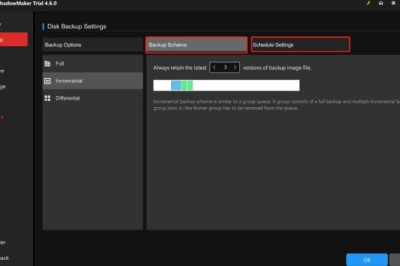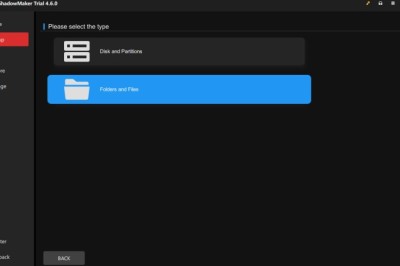views
Technology is inarguably the most resourceful choice for a career path, with Web development taking the lead. But apart from the name-jingles n’jargons in tech industries, what exactly does a web developer do? What role does web development play in a practical world? How can one set out on a successful career in web development? These tips on how to become a Web Developer will provide answers to these questions.
Do You Want to Become a Web Developer?
You should be familiar with HTML, CSS, and JavaScript if you want to work as a Web Developer. It's also a good idea to brush up on your CSS and CSS framework knowledge.
These core web development skills will provide you with the foundation and reasoning necessary to communicate with programming languages.
1. Web Development Fundamentals
The easiest way to get started as a Web Developer is to master the foundations of web development, such as HTML (Hypertext Markup Language), CSS (Cascading Style Sheets), and JavaScript.
Many aspiring Web developers are increasingly enrolling in coding bootcamps to expedite their learning.
Coding bootcamps have prospered because they are short, intense, and focused on outcomes and employment — their aim is to gain job-ready skills as quickly as possible, making them a more valuable investment for aspiring Web developers.
According to Indeed, four out of every five organizations in the United States have employed a coding bootcamp alumnus.
In reality, the benefits of coding bootcamps are becoming increasingly apparent. Web development naturally draws people from many walks of life, many of whom are mid-career transitioning — people who value a clear and quick path to skill improvement.
Employers are increasingly valuing skills and experience over schooling, putting anybody who can show their skill on a level playing field with developers with a college diploma.
Web Developers, more than most other professions, must be dedicated to continuous learning in order to keep up with developments in web development and programming languages, tools, and trends. This causes mid-career retraining, whether it's in the same field as before.
2. Web Development Specialization
You'll need to pick a specialty as your talents develop.
What are the many sorts of web development, though? They divide Web developers into three (3) categories:
a. Front-End Development
A front-end developer is someone who works at the front end of a website. A Front-End Developer handles the "client-side" of web development, which refers to any part of the site or app that users interact with.
This might involve the layout, design, and user interaction with a website.
b. Back-End Development
Back-end developer is a person who works on the back-end of a website. A Back-End Developer is a web developer who works on the "server-side" of the process. This is concerned with how a website operates, and might involve databases, servers, networks, and hosting.
C. Full-Stack Web Development
A Full-Stack Developer is knowledgeable about both front-end and back-end web development and can work on all sides of a website.
3. Key Programming Languages for Web Development
Whatever your area of specialization, you'll need to learn to write and use a variety of computer languages for web development and web design. So, which programming languages are the most popular?
Three (3) computer language families serve as the foundation for almost all elements of web development:
a. HTML is a hypertext markup language (Hypertext Markup Language)
b. CSS (Cascading Style Sheets)
c. JavaScript
The list continues on and on — these are only the beginning. In reality, web development is such a broad and varied area that a list of all the jobs it may include (together with all the coding languages and markup languages you can need to complete them) would take up much too much room.
Fortunately, as a professional, you may identify and focus on the ones that are most beneficial to you.
4. Web Developer Skill Developing Projects
You're ready to construct once you've mastered the fundamentals of HTML, CSS, and JavaScript, as well as a foundation of programming skills. You'll gain expertise with an ever-expanding set of Web Developer talents as you go.
Some of them are technical or "hard" skills, such as SQL or Python programming, using the jQuery library of functions for more efficient programming, or using version control systems like Git.
The greatest method to enhance your web development skills is to experiment with them; the more you use them, the better you will become.
There are a variety of web design skills that Web Developers should possess, with the awareness that responsive design is likely the most important. While Web Developers aren't usually in charge of the overall site design, having a thorough grasp of basic design ideas is helpful.
Front-end developers, in particular, program the interfaces that users interact with, and having a strong understanding of user-centered design can help them be considerably more effective.
5. Web Development Portfolio
When looking for web development employment, your greatest weapon is a captivating Web Developer portfolio that highlights your finest skills. When creating a portfolio that stands out from the crowd, there are three things to keep in mind.
‣ Sample Filter
Foremost, your Web Developer portfolio should showcase a wide range of web development projects.
You don't want to include every project you've ever worked on in your professional portfolio; instead, it should serve as a highlight reel that not only showcases your greatest work but also illustrates your versatility.
You want to be selective and emphasize your greatest work, but your selection should be broad enough to show a thorough knowledge of the position's different components.
When applying for Web Developer positions, conduct some research on the firm and the position you're going for, then fine-tune your portfolio by removing irrelevant samples and emphasizing your most relevant work.
‣ Application-Targeted Sample
Second, consider what distinguishes you and your work. Emphasize the web development talents that will help you stand out the most — not just in the work you put in your portfolio, but also in the way it is presented.
If you're seeking for design jobs, for example, your portfolio website should have a strong front end — a pleasant user experience with a pleasing interface.
If you're applying for a Web Developer position, make sure you post your portfolio on a professional-looking website. That implies you won't have to deal with any clumsy code.
‣ Method Demonstration
Third, demonstrate your method. Employers aren't only interested in the quality of your work; they're also interested in how you solve challenges.
Don't be hesitant to present each example as a case study, with a narrative describing your thinking process and the problem you were attempting to tackle with the project.
Providing context for how your projects were generated can assist recruiters and Hiring Managers understand your work and make it more than just a one-off piece.
This is also an excellent opportunity to exhibit your communication skills, which are crucial for success in any role.
Is Web Development a Progressive Field?
Yes, the industry of web development is flourishing. In North America, there are over 1.3 million Developer positions available, with over 47,000 new development jobs established in the previous two years, and they predict the market to increase by 15% in the next five years.
As a result, Mondo identified "Web Developer" as the most in-demand job title in IT, as well as one of the highest-paying occupations.
Salary Expectation for a Web Developer
The average income for Web Developers in the United States is $71,531, with Senior Web Developers earning $95,325. As a result, web development is one of the most paid non-degree occupations.
How Can I Become a Web Developer Fast?
Coding bootcamps have been a popular choice for aspiring Web Developers because they give hands-on training and the opportunity to build job-ready skills in as short as 12 weeks.
Many Web Developers have traditionally begun their careers with a bachelor's degree in software engineering, computer science, or a similar discipline. It is conceivable, though, to come from an entirely other industry.
Indeed, an increasing number of professionals are taking steps later in their careers to study development from the ground up, either self-taught or through a coding bootcamp program.
In fact, according to BrainStation's Digital Skills Survey, 55% of development respondents started their careers in a different sector, and 58% had only been programming for five years or fewer.
What Is Needed to Become a Web Developer?
To become a Web Developer, you'll need to gain the following skills:
‣ Web Development Foundations
Web Developers build websites, thus you'll need a thorough grasp of how the internet works if you want to work as one. This will improve your HTML and CSS skills so that you can create and style more complex static web pages with frameworks like Flexbox.
It will also assist you in developing problem-solving techniques and reasoning in order to comprehend complex programming topics.
‣ Programming Fundamentals
For prospective Web Developers, a basic understanding of computer programming, JavaScript, and object-oriented programming should be the starting point, as it will boost your skill to develop and build components.
‣ Front-End Frameworks
Aspiring Web Developers should learn how to construct sophisticated and dynamic web pages and professional-level user interfaces using React, a JavaScript framework.
‣ Web Servers
You'll need to know how to construct servers using a contemporary back-end framework, as well as how to create custom APIs and serve static webpages and files, in order to become a Web Developer.
‣ Server-Side Programming
Understanding Server Side Rendering and Templating Engines, which are used to produce empty page templates updated with dynamic data, such as a series of product pages for an eCommerce site, is critical for Web Developers.
‣ Databases
Aspiring Web Developers will also need to learn about basic data principles and how to handle databases and data on a web server.
Because programming languages and techniques change regularly, Web Developers, like those in other tech areas, must network and continue to learn.
You may keep current by contributing to an open-source community, such as GitHub or Bootstrap, besides coding bootcamps, web development classes, panel discussions, and workshops.
Of course, if you want to work as a Web Developer, you'll need a portfolio of completed projects to show employers. Regardless of your particular hobbies, it's critical to show your adapt skill,so that clients from diverse sectors may get a feel of your capskills.
How Many Programming Languages Should I Know?
A straightforward query with a convoluted response. It's difficult because, like so many things in life, it depends on several factors.
Are you a novice or a seasoned Web developer? What kinds of projects do you currently work on or would like to work on? What does the future hold for us?
If you're a novice Web Developer, it's a good idea to start with the fundamentals—but specialty can help you stand out from the crowd.
The solution, in the end, is to figure out which languages are valuable in your profession, have the correct level of expertise for you, and are rising in popularity rather than declining.
BrainStation undertook a study of the present digital world to get a grip on these tendencies. We've put together an overview based on the responses of thousands of professionals to assist you figure out which programming language you should start learning right now.
Multiple Knowledge of Programming Languages is an Advantage
Take solace because you're working in a growing sector if you're a Web Developer. According to the US Bureau of Labor Statistics, the market for Web Developers is predicted to expand by 15% by 2026.
The profession has experienced an infusion of relatively young talent because of this quick expansion; 58 percent of our poll respondents claimed they've only been working in development for five years or fewer.
According to our research, the more experience Web Developers have, the more likely they are to work in full-stack development and have a greater range of specialties.
The takeaway: continuing to learn new and more specialist languages is critical for a Web Developer to advance in their career—which, ironically, makes them less specialized and better equipped to cooperate with or lead teams working on a broader range of projects.
Most Popular Coding Languages
Another paradox is that while a few languages appear practically everywhere, the long tail of highly specialized and esoteric languages is essential.
When asked which programming languages they presently use, respondents predominantly chose JavaScript (80%), with SQL (47%), Python (35%), and Java (27%) rounding out the top five.
Consider these... fundamentals: regardless of your field of expertise, one or more of these is a virtual requirement if you're a Web Developer.
Respondents also named JavaScript and Python as the most pleasurable languages to work with, which not only explains its popularity, but also implies that it will continue to grow.
Even with a selection of 17 programming languages to pick from, 33% of respondents chose "Other," making it the third most popular option and showing that, while the industry has its favorites, there is still a need for more esoteric languages.
Fastest-Growing Programming Languages
We can expect the list of most often used languages to alter as new applications arise.
When asked what will have the greatest impact on their sector in the next five to ten years, the vast majority of respondents (78%) identified artificial intelligence and its subset, machine learning, as the most promising development areas.
The Internet of Things (54%), augmented reality (53%), and blockchain are among the other innovations they expect (41%).
Despite their expectations that these technologies would gain traction, only a small percentage of developers have worked with them—83% have yet to work on AI platforms or blockchain technology, and 80% have no expertise with IoT devices.
Indeed, because blockchain technology is still so new, intermediate-level responders were more likely than senior-level developers to have worked with it—but just one in every four.
These data show novices should brush up on blockchain technology to boost their prospects of progression, while Senior Developers should study to stay relevant.
What Languages Should a New Web Developer Learn?
What languages should you study, given the "big five" sectors where development is expected—AI and machine learning, IoT, AR, and blockchain—?
While the response varies depending on which of these five areas you choose to concentrate on, the same three names came up repeatedly: C++, Java, and Python.
More languages, besides these three, are found within each of the aforementioned concentrations. Ruby and Solidity are two blockchain programming languages. C, JavaScript, and PHP are all used in the Internet of Things.
R, Lisp, and Prolog are three programming languages used in AI and machine learning. C#, JavaScript, and Swift are also available in AR. In every case, though, C++, Java, and Python are among the top performers.
These are the languages that people are using now to work in the fields that they've selected as the most promising in development. What about the next day? There's no way to foresee the future with certainty, but we can look at which languages are gaining the most traction.
Comparing search queries—a proxy for determining which languages individuals are presently learning—is one approach to achieve this. A collection of search queries on GitHub reveals that the fastest-growing languages are new, as one might assume.
The Java-compatible Kotlin language expanded at the quickest rate in 2018, more than tripling year over year.
The top five languages include HashiCorp Configuration Language (HCL) for cloud infrastructure, TypeScript, Microsoft's automation framework PowerShell, and Rust, a systems programming language.
Python is not far behind, at ninth place. Despite its popularity, Python has grown by 50% year over year, showing that it is a genuine juggernaut on the rise.
Qualities of a Good Web Developer
According to the Digital Skills Survey conducted by BrainStation, 50% of executives expect to hire the most in development. However, our respondents also said that development was the hardest sector to employ for, and that as the need for these skills grows, it will only get more difficult.
What should businesses be on the lookout for? And how can prospective developers make a name for themselves when they first enter the market?
To begin, examine the following definition, which paints a complete picture of what an excellent developer entails:
"Writes functioning code that has been tested for accuracy in the time allotted, following acknowledged best practices, in a style that is easy to maintain and extend, with their team, and consistently enhances their knowledge and skills throughout their career."
Let's go further into these concepts to explore what makes a competent developer.
A skilled web developer should be able to:
‣ Write Working Code
Computers are digital devices that are incredibly exact. The tiniest variation from what a computer expects causes code to not compile, operate, or crash.
The goal of programming and software development is to produce code that the computer can understand and execute, resulting in the intended outcome. To put it another way, a skilled Web Developer must develop code that really works.
He or she has a keen eye for detail and is always examining code for anything that appears to be "wrong." They develop well-structured, clean code and employ tools to detect any flaws before the code executes.
‣ Write Correct Code
That the code works does not imply that it is accurate. The first challenge is getting the code to work. Code that doesn't operate correctly is just as worthless as code that doesn't work at all, and it's perhaps riskier.
Wrong results can have a variety of effects, ranging from minor (and occasionally amusing) UI annoyances that irritate end-users and reduce productivity to the catastrophic, such as loss of life or cash.
Developer mistakes will result in software failures, system failure, data damage, security breaches, or the loss of users who demand reliability.
As these problems make their way into production and are found by end-users, they become more expensive to rectify. Physical buildings must be thoroughly tested to verify that they are "up to code," and software must meet the same high requirements.
As a result, a competent developer develops a test-driven attitude, actively considering all scenarios in which mistakes could arise, how they should be handled, and developing tests to ensure the code is right.
‣ Respect Timelines and Deadlines
Computers hold the promise of increased productivity and efficiency. They enable consumers to achieve and comprehend more. Web developers use technology to bring productivity and efficiency to life in today's fast-paced environment.
The expectation of having everything done right now is a side effect of our environment. Managers, clients, users, and the competitive business climate all put pressure on you to get to market first. That can put a lot of strain on Software Developers, and they are only human.
Estimating project duration is tough because of the many unknown and unanticipated issues that arise when developing complicated software. The temptation to undervalue and disregard the real details necessary to execute jobs is constantly there.
Underestimating the time to delivery is risky, as it leads to stress and fatigue, pressure to cut shortcuts, and unfavorable sentiments among all project stakeholders.
It is critical to identify all workable specifics for a project, have a realistic view on the amount of work a reasonable amount can complete that , and overestimate timescales to accommodate for the unknown and unforeseen.
When deadlines slip, communication is crucial, and making sure that everyone is aware of issues ahead of time helps to manage and avoid missing deadlines.
A competent developer preserves the confidence of their team and other stakeholders by setting realistic expectations, communicating clearly about unforeseen barriers, and setting fair expectations.
‣ Follow Web Development Best Practices
Once the code is functional (and functionally valid), you must write it in the most efficient manner, workable. Whatever technique the Developer took while building the code should be compared to the solutions proposed by the greater Developer community.
A creative, distinctive method might be an inventive solution–or it could be missing factors that other Developers have found.
Software development is a complicated process that has a long history of many brains debating the best method to address common challenges. As a result, several best practices have emerged.
Because problems do not need to be rectified, following these best practices saves time (instead, existing solutions just need to be applied appropriately). Developers can build "on the shoulders of giants" because of this.
When diverse Developers contribute over time, common knowledge emerges that any new developer on the project may quickly grasp.
We divide best practices into two categories: industry-wide and company-wide.
Company-wide practices will often be a subset of industry-wide norms that have been tailored to the peculiarities of a company's software domain and the Developers' preferences.
A smart developer knows his or her company's best practices and implements industry-wide best practices to save time and enhance code quality.
‣ Write Maintainable and Enhance-able Code
They have checked the code for accuracy and compiles and executes. Things appear to be in order, but how simple will it be to update the code in the future? What happens if you need to add a new feature?
"Any idiot can create code that a machine understands," argues engineer and author Martin Fowler. Good programmers produce code that is understandable by people."
While a computer may execute any legitimate code, people must eventually maintain the code. A Developer will have to read, comprehend, and alter code that was authored by another developer (who may no longer be part of their team or company).
Software development is a collaborative effort in which many individuals contribute to and rely on the codebase. "How much is clear from the code?" is an example of a question.
Is there anything else that needs to be said? "How quickly can the code be examined and understood?" are all questions that remind a developer that they aren't developing code for themselves.
A good Web Developer develops high-quality code that is simple to comprehend and alter by other Web Developers.
‣ Team Collaboration
The reality of a Web Developer's work environment is social, although they spend much of their time communicating with computers. It's critical to respect the team, understand the roles and duties, and understand what's expected of you.
The Developer's alignment to the firm and their position is ensured by asking big picture questions: "What is the company's vision, purpose, and values?" What is the company's product offering? Who are the clients? "To whom do concerns need to be reported?"
Knowing these specifics enables a developer to advance within the confines of their particular firm or environment. As a result, a professional developer will take the time to learn the company's best practices and standards.
They'll also streamline the development process to save time and boost production. Most essential, they must have a good attitude that contributes to a more productive and helpful workplace.
A good developer understands that their web development career and reputation are entirely in their hands. They attempt to be pleasant to work with and are constantly looking for ways to make their team's burden lighter and more efficient.
Learning Attitude of a Good Web Developer
Technology is always changing, which is one thing that makes it so fascinating. While certain computer science ideas and methodologies have stayed consistent throughout the years, software development is continually developing.
Some software domains have a higher level of stability, whereas others have a higher level of volatility.
Legacy software is based on older technology, which needs more maintenance and minimal innovation, whereas developing domains may have many rewrites every few years as conditions evolve.
To put it another way, they expect web developers to consistently upskill and keep current with shifting trends.
That isn't always an issue if it is accepted. Data science, UX design, product management, digital marketing, and SEO knowledge may assist a developer's general grasp of technology, allowing them to interact and collaborate with colleagues and clients across departments and sectors.
Web developers that succeed are perpetual learners who strive to improve their knowledge and skills year after year.
Web development is indeed a great choice for a continuous tech career or a planned career switch. We hope this article has opened your mind to the many possibilities of web development. Ensure you subscribe to our newsletter, and we will notify you of our next release.
Tech Regards!




















Comments
0 comment